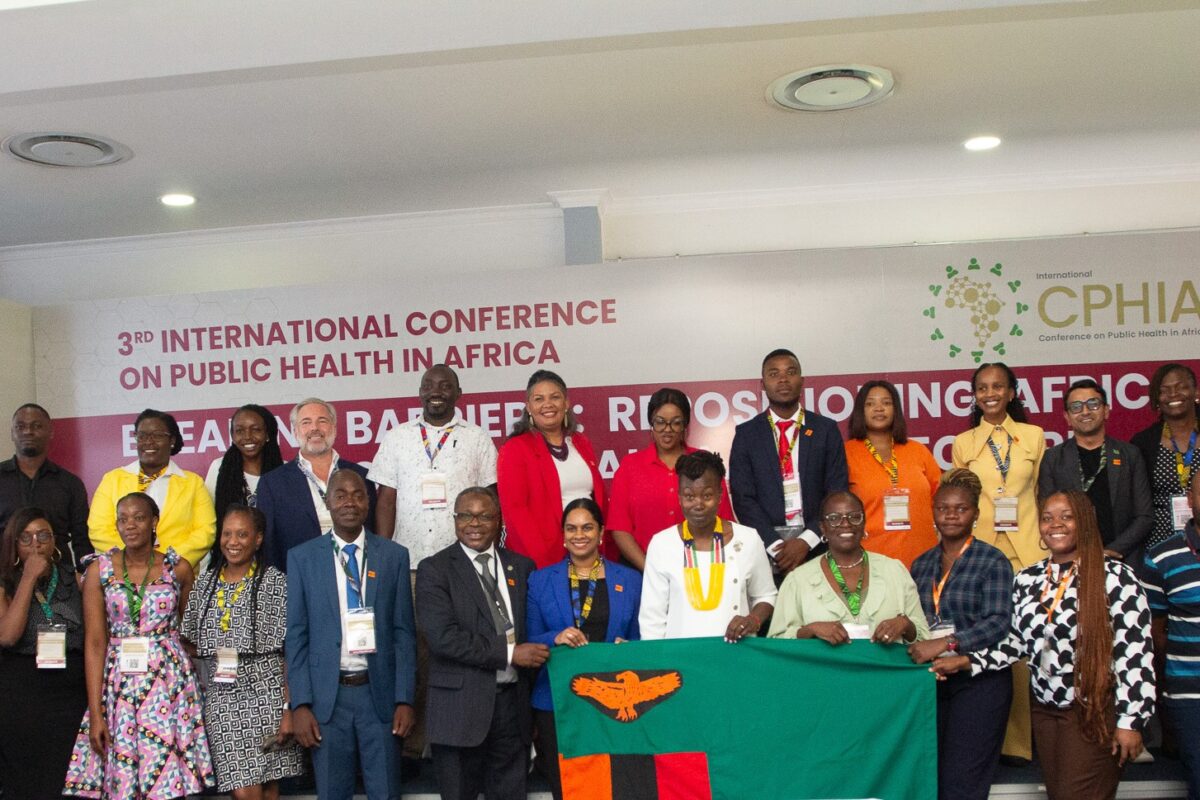LifeLine International Member’s Youth Delegates Shine at Africa CDC’s Youth Pre-Conference
March 2024
Africa stands at the forefront of a demographic shift, with over 65% of its population under the age of 30. Harnessing the potential of young Africans is crucial for the continent’s growth, requiring empowerment, inclusion, and meaningful engagement.
Recognising the significance of youth participation in shaping the future, the Africa Centre for Disease Control and Prevention (Africa CDC) held its annual Youth Pre-Conference (YPC) in December 2023, on the sidelines of the 2nd Annual International Conference on Public Health in Africa (CPHIA), creating a platform for young leaders across various domains to contribute to the advancement of sustainable health systems in Africa.
Out of 250 participants for the Youth Pre-Conference, four outstanding delegates from the LifeLine/Childline Zambia selected to represent their organisations and contribute to the discussion.
“Well done to Tondeka Mbali, Akekelwa Catherine Chitonka, Bwalya Violet Chisenga, and Chilufya Ndondo, who really stood out, showcasing their commitment to public health, innovation, and advocacy, as well as suicide prevention and the vital role of crisis support,” LifeLine International CEO Thilini Perera said.
The YPC is part of a long-term strategic engagement between Africa CDC and the continent’s emerging young professionals. The overarching theme, “Meaningful Youth Engagement for Advancing Sustainable Health Security in Africa,” underscores the importance of involving youth in decision-making processes at all levels, including health, mental health and suicide prevention. Six of the top ten countries with the highest suicide rates are in Africa with a tragic and alarming skew to youth suicide – Africa is also home to 11 countries where suicide remains a crime.
“The need for action on mental health is undisputable and urgent in Africa. To reduce the suicide rate in Africa especially among the youth, will require strategies at all levels of society. Effective prevention is comprehensive and also requires a combination of efforts to work together,” Bwalya Chisenga said.
“Some of the strategies may include responding effectively to individuals in crisis as youths can help prevent suicide by learning the warning signs, and freely and openly seeking help without fear as well as providing for immediate and long term postvention, reducing access to means of suicide, enhancing life skills and resilience, and promoting social connectedness and support.”
By encouraging youth innovation and participation in health systems, Africa CDC aims to build a safer and healthier Africa. Enthusiastic young professionals like Tondeka, Akekelwa, Bwalya, and Chilufya, are set to play a pivotal role in shaping the future of public health on the continent.
“I feel one of the major challenges is budget allocation to health programs. I might not be precise but it’s actually less than 0.5 per cent that goes to health support and delivery of systems. This has affected access to mental health services in many African countries, including health facilities having one or close to zero health workers in rural facilities to provide mental health support services This lack of resources results in limited support services for people with suicidal thoughts,” Akekelwa Chitonka said.
The selection of Tondeka, Akekelwa, Bwalya, and Chilufya, as delegates is a testament to their dedication and expertise. LifeLine International is immensely proud of these fantastic young representatives. Their achievements reflect not only their personal commitment but also their organisation’s emphasis on nurturing and supporting young talent in the field of suicide prevention.
“It was really a great honour to be part of the 250 young people that were selected to participate in the Africa CDC Youth Pre-Conference across 51 countries,” Akekelwa Chitonka added.
At LifeLine International, we recognise the importance of fostering a collaborative environment that empowers young professionals and leadership to actively contribute to the future of public health in Africa.
“We want to see more young people involved in decision-making and the cultivation of a new generation of leaders who will drive Africa’s suicide prevention agenda forward, addressing social stigma, advocating to change the policy landscape including decriminalisation, and leading the way in innovative service delivery to get more help to more people in more places,” said Ms Perera.
